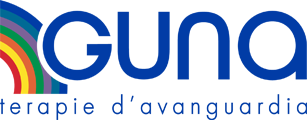No patent
PROPOSAL ON INDUSTRIAL PATENTS TO HELP SPREAD KNOWLEDGE
In 1999, the Seattle World Trade Organisation (WTO) protests brought the issue of patents and intellectual property into the spotlight, making it part of the political agenda of the world’s social movements.
In recent decades, more and more citizens have campaigned for a form of globalization that is not focused exclusively on profit, and the sensibilities and expectations of users have changed radically.
The obsessive protection of monopolies on vital and necessary goods such as medicines, seeds, and water has come under increasing attack and sparked major public awareness campaigns.
This is particularly true in the pharmaceutical sector, where patents remain the key instrument for protecting investments in research, so much so that the interests of companies have at times come before public health interests.
GUNA S.p.a. is a pharmaceutical company located in Italy and on the international markets, which operates in the field of scientific research and produces of drugs of natural origin. It is a European leader in the homeopathy, homotoxicology and integrative health sector, founded in 1983 by Alessandro Pizzoccaro and his wife Adriana Carluccio.
Guna strongly believes in a form of medicine that is tailored to the individual, and is respectful of the unique body, mind, and spirit of the patient. Guna products are geared to preventing illness and promoting healthy lifestyles.
One of GUNA’s main goals is to encourage individuals to achieve their ideal state of health, a process that takes the focus away from treating symptoms and places it more squarely on maintaining the psychological, physical, and emotional balance of their bodies, the ideal condition for fully activating the immune system and achieving optimum health and wellbeing.
GUNA is aware that the ultimate goal of a company is to do business, and in this regard it does not claim to be any different. However, it is convinced that the quest for profit must go hand-in-hand with the pursuit of ethical and social goals.
As a company, GUNA takes on various responsibilities such as: investments in scientific research, employment, technological innovation, the wellbeing of employees and the community, improving the general health indexes of the countries in which it operates, and stimulating more informed approaches to the concept of health and illness.
GUNA looks to the future, working hard to guarantee the wellbeing of the community, and is not interested in allocating resources to “protect the past”.
As such, with this letter the company wants to announce that all procedures for patent protection of products and industrial processes have been eliminated from its range of proprietary drugs.
GUNA has invested heavily in the launch of its new pharmaceutical facility in Milan, one of the most technologically advanced in the industry, and continues to invest in scientific research.
All product, technological processes, and innovations are marketed without patent protection. In addition, every new scientific or informational publication printed by the company, including results of clinical trials financed by GUNA, carries a “copyleft” licence (free distribution without any need for prior authorisation, upon citation of the source).
We view patents as a heavy burden that hinders the natural impulse for new knowledge. The third millennium will be full of testing new challenges: we can only hope to overcome these by first and foremost sharing knowledge at all levels.
We are determined to make our own small but ongoing contribution. GUNA does not aim to abolish or ban patents and copyright but intends to make its own informed, well thought-out, and rational decisions. With this letter, we invite all quality and efficiency-minded protagonists of the pharmaceutical sector to reflect on the benefits that everyone, companies, and patients alike, can enjoy if we channel our resources and energy into free and shared scientific research rather than obsessively protecting our own knowledge and expertise.
In a nutshell, we would like to see a more “holistic” approach to the management of knowledge in the future, just as we propose a holistic approach to the health of our patients.
Chairman of GUNA S.p.a.
Dr. Alessandro Pizzoccaro
